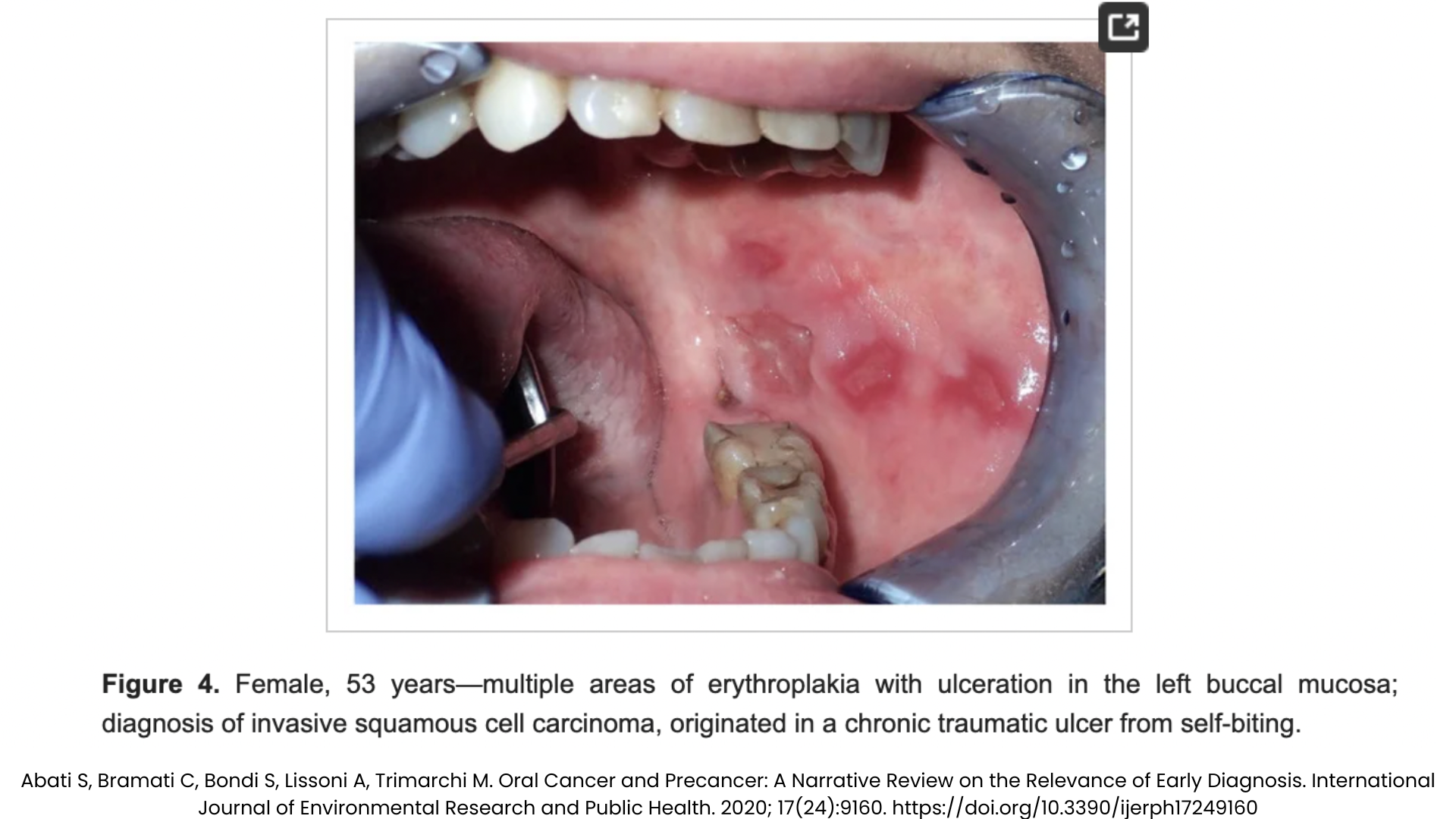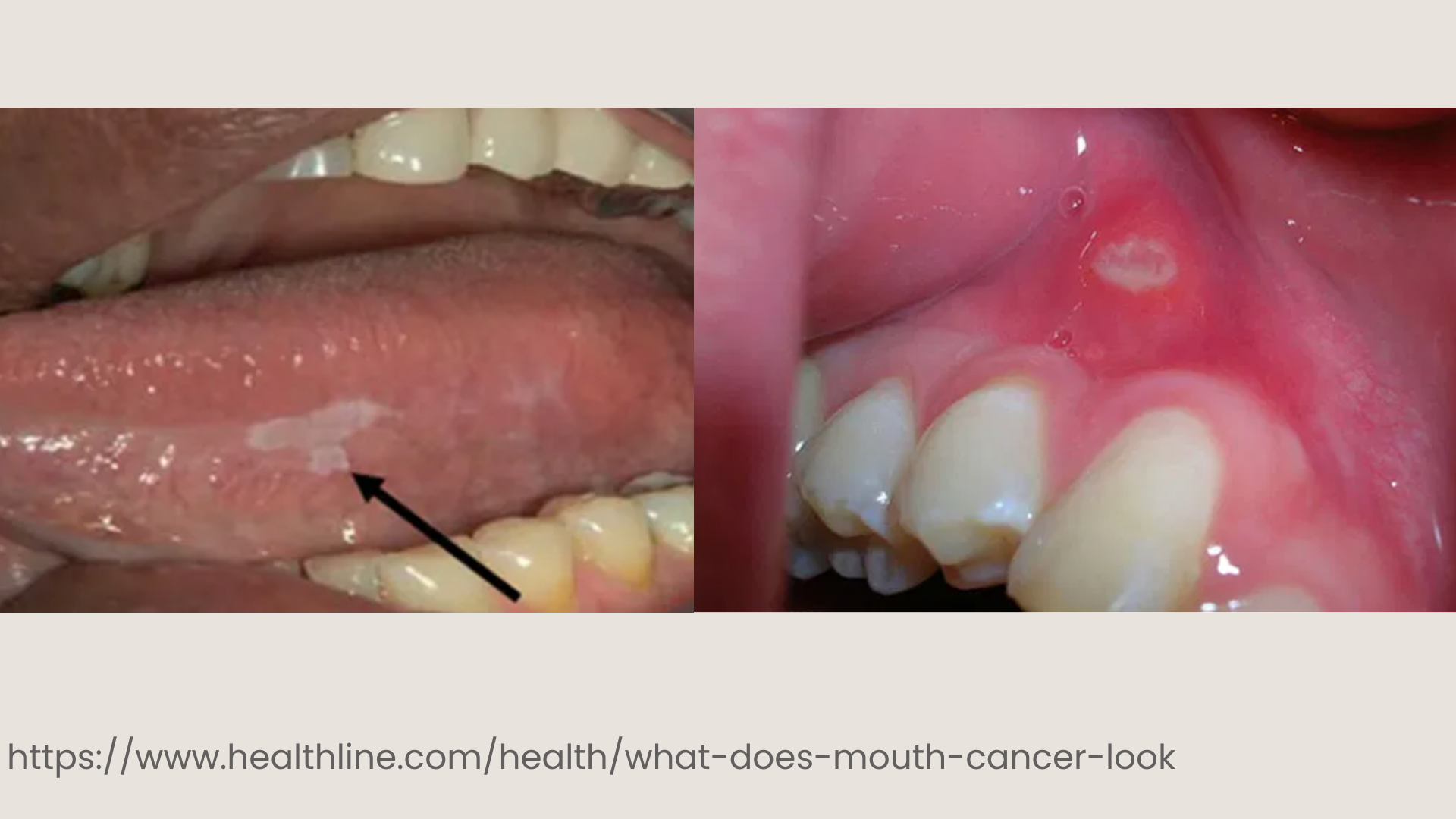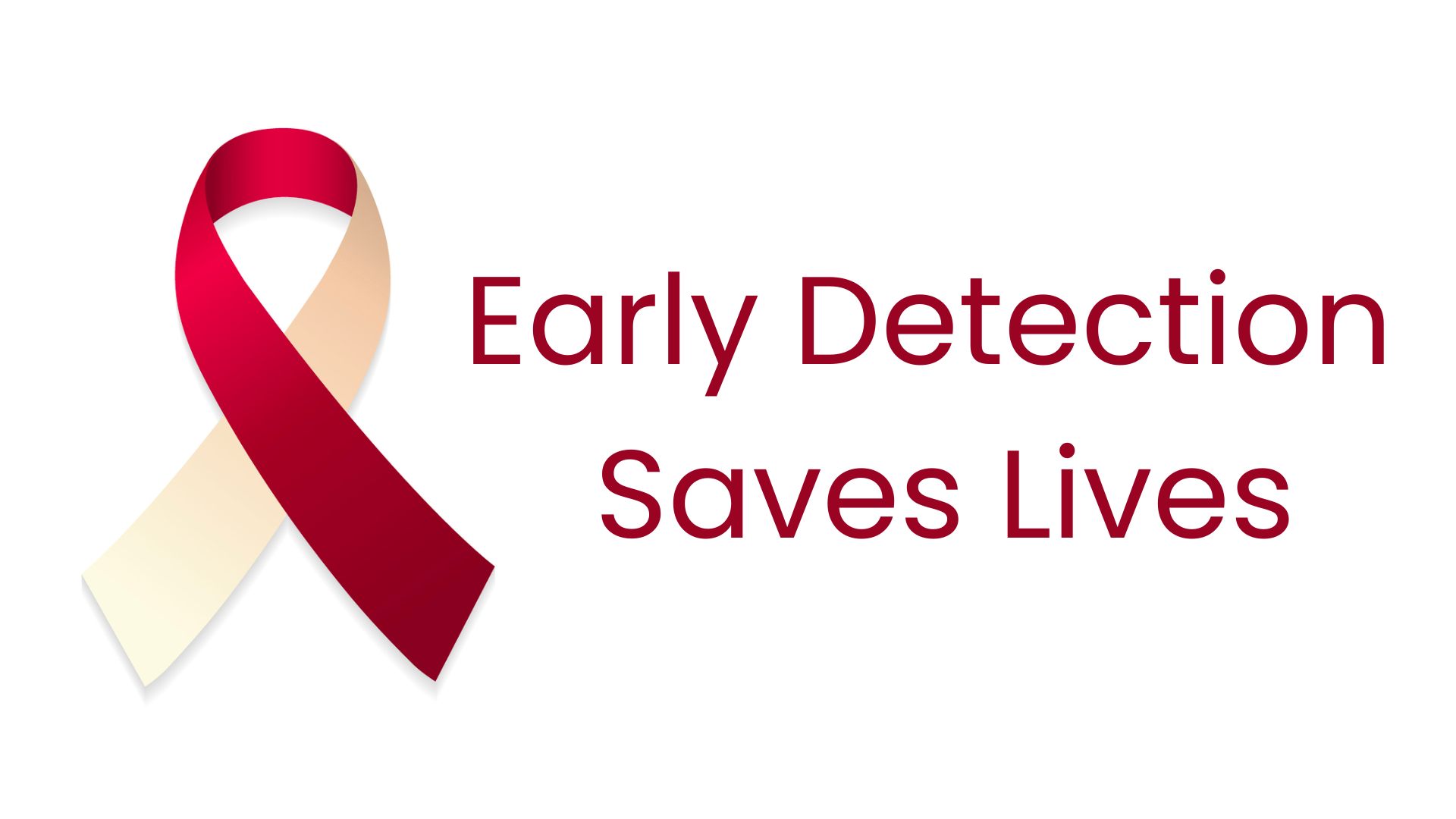April is Oral Cancer Awareness Month
Every hour of every day, someone dies of oral or oropharyngeal cancer.
Of those diagnosed with oral cancer, ~43% won't survive longer than five years. Many who survive have to live with permanent alterations of their lives, including severe facial disfigurement, changes in eating, and changes in speaking.
But, early detection and treatment can make a significant difference in long-term outcomes. The death rate is particularly high with these cancers because unfortunately they are often discovered late in their development.
What causes oral cancer?
Most oral cancer is associated with tobacco use, heavy alcohol use, or human papilloma virus (HPV). Additionally, sun exposure can cause cancer of the lip, and cancer risk increases with age. Most oral cancers affect people over age 40. If you have a weakened immune system, this can also increase your risk.
But, some people develop oral cancer with no known risk factors.
What are the signs and symptoms?
Any lesion in the mouth that does not go away within about two weeks warrants evaluation.
Oral cancer presentation can vary widely. It can look like a small bump, an ulcer, a patch. It can be white or red, like many benign oral conditions. And if you are not looking, it is easy to be completely unaware of it.
Sometimes you may feel altered sensation, but often early on, you won’t. If you experience sore throat or feeling like something is stuck in your throat, difficulty chewing, swallowing, speaking, or moving your jaw or tongue, swelling, numbness, or ear pain that lasts for more than two weeks, these are also symptoms you should not ignore, and you should make an appointment with your dentist and/or ENT doctor.
Diagnosis
Dentists can do an oral cancer screening along with examining your teeth. It involves thoroughly looking inside and outside of your mouth for any suspicious areas. If a potential abnormality is detected, your dentist may ask you for more information. If you know you nicked yourself with a chip in that area, it could simply be a traumatic lesion, and most often if it goes away within two to three weeks it does not require further evaluation.
However, if indicated, your dentist may refer you to a dental specialist for a biopsy of the area, or if it’s external may recommend you see a dermatologist. During the biopsy procedure, the area will be numbed, and a small sample of the area is removed so it can be tested in a laboratory.
Treatment
When oral cancer is detected early, it is usually treated with surgery or radiation therapy. The treatments can include these, as well as chemotherapy and immunotherapy. It may involve collaborative efforts of surgeons, oncologists, nutritionists, and rehabilitation and restorative specialists.
Unfortunately aggressive cancer treatment is likely to have toxic effects on normal cells as well as cancer cells. The gastrointestinal tract, including the mouth, is especially susceptible to damage. Pre-existing oral conditions may increase the risk of infection or other issues, so it is usually ideal to address other oral health needs, especially any extractions prior to treatment.
Key Takeaways - What You Can Do
Avoid the known risk factors such as tobacco use and heavy alcohol use, which also carry other potential health implications. Avoid excessive sun exposure, and include a sunscreen lip product as part of your sun protection. Wearing a broad brimmed hat can help to shade your face and mouth.
Remember that early detection is crucial for long-term outcomes, and that oral cancer can occur even without known risk factors. This alone is a good enough reason to see your dentist as recommended at least every 6 months, and ensure your dentist is doing an oral cancer screening when they examine you.
Further, if you notice any of the signs or symptoms listed above, do not wait until your next scheduled appointment to be evaluated. This could make all the difference in the trajectory of your life.
Oral Cancer Foundation
“The Oral Cancer Foundation is a national public service, IRS registered 501(c)3 head and neck cancer charity, designed to reduce suffering and save lives through prevention, education, research funding, advocacy, and patient support activities. Oral and oropharyngeal cancers are the largest group of those cancers which fall into the head and neck cancer category.” You can get involved and support their mission by donating at oralcancerfoundation.org and/or by participating in OCF walks and fundraising.
ABOUT THE AUTHOR
Dr. Kelsey B.P. Garza is a General Dentist and the owner of Darling Dentistry in Bulverde, TX. She is delighted to be able to provide patients in and around Bulverde and Spring Branch with an elevated experience to the dentist through quality, compassionate, and ethical care with special attention to providing a more relaxing environment and helping patients overcome dental anxiety and fear. She provides patients with oral cancer screenings as a part of comprehensive and periodic exams. She is an active member of the Academy of General Dentistry, American Dental Association, American Association of Women Dentists, Texas Dental Association, San Antonio District Dental Society, and the Bulverde - Spring Branch Area Chamber of Commerce. She is accepting new patients. If you have any questions or concerns or would like to schedule an appointment, click the Schedule Now button to reserve your spot through our online scheduling, or reach out to 830.357.7177 or care@darlingdentistry.com.







